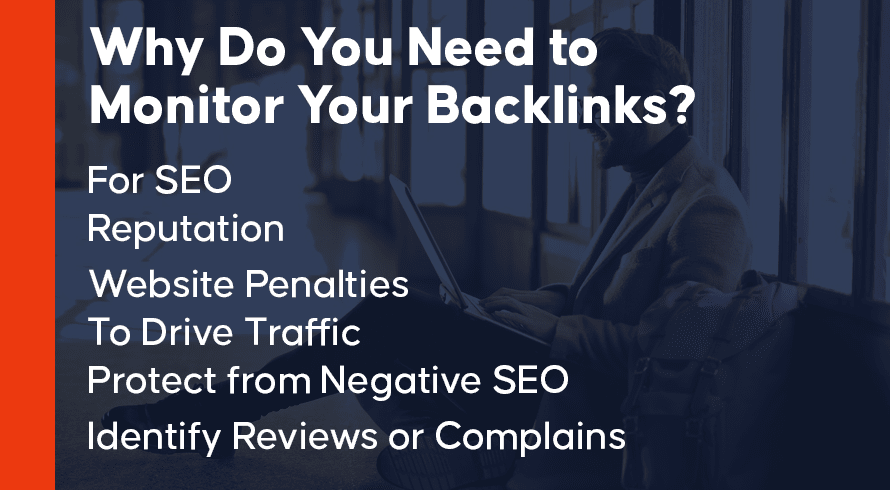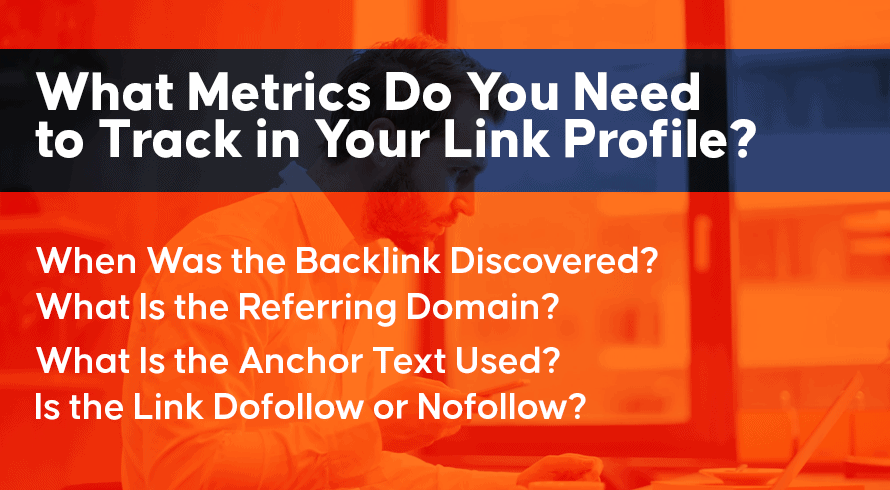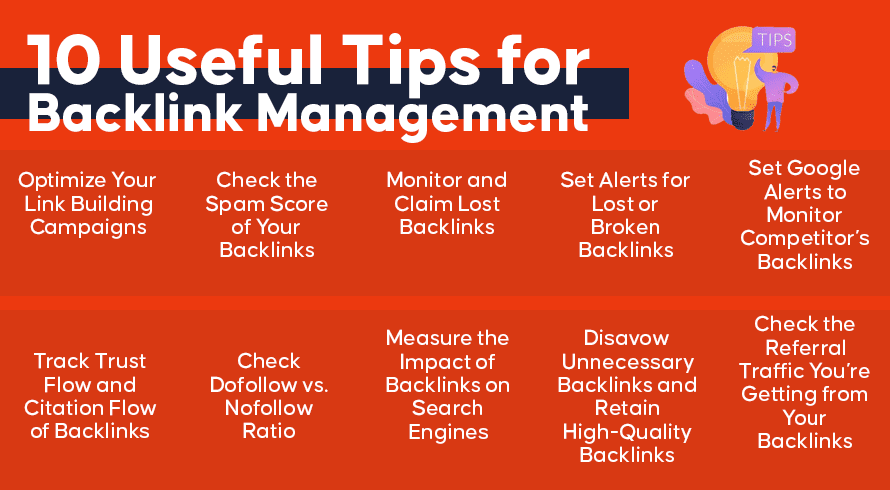Inquivix HQ
1-903, 18 Eonju-ro 146-gil,
Gangnam-gu, Seoul, Korea
06057

Link building is an important part of any effective SEO campaign. But for link building to be effective, you need to know how qualified your inbound links are and which ones require further attention. This is where link tracking comes into play. The type and quality of links coming into your site, as well as the anchor text linking back to your site, is an excellent indication of how you’re doing in terms of search engine rankings.
What Are Backlinks?
Backlinks (or inbound links) point to a specific website from other websites. Any links directing to your website from other sites are called backlinks. Any link directing from your website to another site means that another site has earned a backlink from you.
Why Do You Need to Monitor Your Backlinks?
It’s important to know which link-building efforts pay off and which ones do not. By keeping track of your backlinks, you can see which websites are linking to you, how many links they have pointing to them, and where these links are located. Here’s why you should track and monitor your backlinks.
For SEO
Google and other search engines see links as votes of confidence, and the number of inbound links to a particular website is a major ranking factor. Monitoring your backlinks is the first step to understanding your link profile. You can then identify which links are working best for you, which ones aren’t worth the time and effort, and how to improve your overall link-building efforts.
Reputation
Backlink monitoring also comes in handy when it comes to reputation management. Instead of taking a reactive approach to monitoring your backlinks, you can proactively identify websites that are trying to link to you without your consent. This way, you can nip the problem in the bud before it causes any damage.
Website Penalties
Link monitoring is also useful if a penalty has been imposed on your website. By regularly checking all links pointing to your domain, you can easily see if there are any suspicious links pointing to your site. Keep in mind that Google’s Penguin update is now real-time, so it is even more important for website owners to keep a constant eye on their backlinks.

To Drive Traffic
In addition, link building can also contribute to increasing your website’s overall traffic. Whether you are using social media, guest posts, or other link-building strategies, following the links pointing to your website helps you find out which strategies are effective at driving traffic to your site.
Protect from Negative SEO
If you have an e-commerce website, negative SEO is always a possibility that needs to be considered. By checking all incoming links to your website, you can quickly determine if there are any suspicious links pointing to your site and take immediate action before it’s too late.
Identify Reviews or Complains
Monitoring backlinks can also identify when someone makes reviews or complaints about your site. This will help you to be proactive in responding to such positive or negative feedback.
What Metrics Do You Need to Track in Your Link Profile?
When you are tracking your backlinks, there are several metrics to keep track of. Let’s take a look at these metrics which you need to track in your link profile.
When Was the Link Tracking Discovered?
The date of discovery is important because it provides insight into the value of the links. This allows you to see what links are worth pursuing and which ones can be skipped.
What Is the Referring Domain?
Knowing the referring domain lets you know how popular or authoritative your website is in relation to other websites linking to you. Once you know this, you can determine whether the new website is worth pursuing.

What Is the Anchor Text Used?
Anchor text tells you which keywords are related to your website or what terms users are using for your link. This helps you identify which keywords might be working best for your site and focus on those instead of wasting time and effort on keywords that aren’t relevant to your website. For example, if you are linking to a shoe store, an anchor text of “shoes” might drive the most traffic compared to other keywords.
Is the Link Dofollow or Nofollow?
Dofollow links let search engines know that they can follow the link and count the link toward your website’s overall authority, while nofollow links let search engines know that they can’t follow the link. Most people are familiar with dofollow and nofollow backlinks, but it is still important to know which one you have because this affects how much weight the link carries.
10 Useful Tips for Backlink Management
We discussed why backlink monitoring is important to a business. So, how should a business manage its link profile? There are several things you need to do in order to improve your link-building campaign.
#1 Optimize Your Link Building Campaigns
Before you start your link-building campaign, make sure that it is properly optimized. You need to define the goal of your campaign and the keywords you want to appear in your backlinks’ anchor texts. If you want to get traffic from a certain country and there would be no point in getting links with anchor texts like “Best SEO Company USA”, you need to make sure your message is appropriate for the audience.
#2 Check the Spam Score of Your Backlinks
You need to keep track of spam scores in order to find out whether your backlinks are likely to be weighted down or demoted by the search engines. Having a high spam score for low-quality links may hurt your rankings and traffic in general, so you must check them on a regular basis.
#3 Monitor and Claim Lost Backlinks
You should always monitor whether or not your backlinks are acting as they should be because it is possible that some of them disappear without any warning due to various factors like website migrations or link-building campaigns that stopped abruptly. If you do that, you won’t have to worry about the loss of ranking positions anymore, which is why you will be able to boost your rankings faster when needed. Also, if some of your backlinks are broken or redirected elsewhere, make sure to claim them because different search engines put different weights on such links.
#4 Set Alerts for Lost or Broken Backlinks
As we have just mentioned, there is a chance that some of your backlinks will be lost due to various factors and this is why you should set alerts for the disappeared ones so that you can easily find them and retrieve them if they are still available somewhere else. It usually takes a while to see Google indexing newly restored backlinks, so make sure not to stop monitoring them since it may take up to several months before they get indexed by search engines.
#5 Set Google Alerts to Monitor Competitor’s Backlinks
If some of your competitors stopped their link-building campaigns abruptly, you can put a lot of pressure on their websites by simply continuing your link-building campaign, since search engines may have already indexed some of the backlinks you’re getting. However, beware that if they change their backlink profiles, it will be harder for you to keep up with them so make sure to carefully monitor their link-building activities.

#6 Track Trust Flow and Citation Flow of Backlinks
You need to track both the trust flow and citation flow of your backlinks so that you can see which links are really worth pursuing because not all of them are relevant for your website optimization efforts.
#7 Check Dofollow vs. Nofollow Ratio
Checking backlinks’ dofollow/nofollow ratio is also crucial because it lets you see at a glance whether you are getting more or less relevant backlinks, which will eventually increase or decrease the value of all your ranking signals in general. To track this data point on the
#8 Measure the Impact of Backlinks on Search Engines
As you have already noticed, there are many factors that may affect your rankings so it is crucial to measure the impact of backlinks on search engines in order to find out which backlinks are really worth pursuing.
#9 Disavow Unnecessary Backlinks and Retain High-Quality Backlinks
You need to go through every single one of your backlinks before disavowing them if they don’t seem relevant enough or if their page ranks too low, even if they were initially pointing at your website because the value of your link-building efforts may go down without such backlinks. However, you need to be careful and avoid disavowing relevant backlinks since this practice may harm your rankings as well.
#10 Check the Referral Traffic You’re Getting from Your Backlinks
The last tip for taking care of your backlinks is checking how much referral traffic all these links are generating and which URLs seem to be more valuable than others due to the high levels of referral traffic they bring in. This data point should also influence your future link-building strategies so make sure to track it on a regular basis starting with Google Analytics or any other web analytics tool you prefer to use in order to see what’s really going on with your backlinks.
Conclusion
Backlinks continue to be a major ranking factor for search engines. Therefore, it is crucial to track and manage them properly in order to get the most out of your link-building campaigns. By using the tips we’ve provided, you should be able to keep an eye on your backlinks more effectively and make sure that only high-quality links are helping to improve your website rankings.
